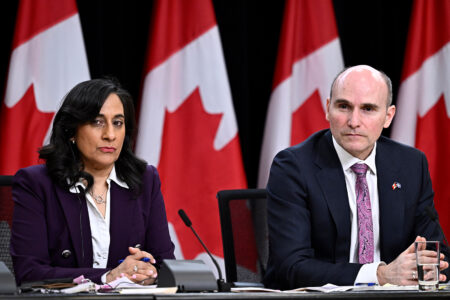
On August 30, 2012, seven years after they had toasted Alan Greenspan and five years to the day after they had gathered in the Grand Tetons to discuss housing finance amid the first ripples of megacrisis, the world’s central bankers returned once again to the Jackson Lake Lodge to consider the world they had created. Both the tributes of 2005 and the warnings of 2007 seemed very far off indeed.
For the first time since the creation of the European Central Bank, no member of its Executive Board had made it to the conference: Mario Draghi and his colleagues were too busy back in Frankfurt developing their newest plan to combat the eurozone crisis. The officials who did make the voyage seemed exhausted, worn down from their many years of late-night decision making. Even the scene in the Blue Heron Lounge in the evenings was subdued, without the usual tables full of attendees shrugging off their jet lag to enjoy a little backslapping camaraderie.
The Friday night entertainment, too, seemed somehow less vibrant. In 2007, the horse whisperer had demonstrated how to break a wild mare. The same technique, he had said, could be applied to inspire trust and confidence in non-equines, too — which prompted one audience member to quip, “What about the commercial-paper market?” This year, local ranchers brought in artificial cattle made of wood and cloth and taught the central bankers how to lasso them. One Fed official yanked the rope so hard after successfully roping one of the “bulls” that its plastic horns came off. If there was an economic analogy here, no one wanted to joke about it.
Each of the major central banks had taken steps beyond any it would have considered possible a few years earlier. The ECB had bought the bonds of eurozone states, violating the spirit if not the letter of its founding treaty, and inserted itself deeply into the budget, tax, and regulatory decisions of several democracies. The Federal Reserve had rescued investment banks and insurance companies, maintained zero interest rates for four years and counting, and bought $2 trillion in bonds through quantitative easing. The Bank of England had joined the ECB in becoming uncomfortably entangled in politics and the Fed in vastly expanding its balance sheet.
And all for what? The economies of the major Western powers were a shambles, with the United States, Britain, and all but the strongest European nations producing well below their potential. In the summer of 2012, there were thirteen million more people jobless in the European Union and the United States than there would have been if pre-2007 trends had continued. A generation of young people faced poor career prospects; a generation of retirees saw its life’s savings damaged by the crisis. In some European countries, extremists were on the march, most dramatically in Greece. By the fall, members of the neo-Nazi Golden Dawn party would be launching violent attacks on immigrants and other non-Greeks with chilling frequency. The streets of Spain and Portugal and Italy similarly roiled with discontent, though of a more peaceful variety.
In Jackson Hole, Michael Woodford, a Columbia University economist who was among the most esteemed academic monetary theorists in the world, took the stage underneath the lodge’s elk-antler chandeliers to deliver a presentation with the dry title “Methods of Policy Accommodation at the Interest-Rate Lower Bound.” Without quite saying so explicitly, the owlish-looking Woodford suggested that the Fed and the BOE’s approach to interest rate policies during the crisis had been all wrong.
“The results that we have do not imply that the task of a central banker under current conditions is an easy one,” he said. “There seem to me to be fewer options that are likely to be effective, and that are likely to be attractive on other grounds, than central bankers sometimes suggest when seeking to reassure the public.” Over the course of thirty-nine thousand words, Woodford noted that central bankers again and again had taken discrete policy actions, but done little to shape expectations for the future more broadly.
All the quantitative easing in the world, he argued, would have little effect in isolation. People across the American, British, and, to some degree, European economies were convinced that the minute there was some improvement, their central banks would cease their stimulative monetary policies. Without knowing exactly what policies their banks would enact as a next step, they had no reason to believe that their economies would ever really take off and grow. And the Fed’s “guidance policies” of stating an expectation of low interest rates until some future date were equally problematic: The central bank had essentially said that it expected the economy to be so lousy that it would keep rates low for years — hardly the kind of prediction to inspire confidence.
Think of the central bank as the driver of a car who pushes the accelerator all the way to the floor, and then lifts his or her foot every time the car goes a bit faster. The key to getting up to highway speed isn’t just to put the pedal to the metal, but to keep it there for a while even after the car starts speeding up.
“It does not make sense to suppose that merely expressing the view of the economy’s future path that the central bank would currently wish for people to believe will automatically make them believe it,” Woodford said. “If speech were enough, without any demonstrable intention to act differently as well, this would be magic indeed.”
Among Woodford’s audience of weary and frustrated modern-day alchemists, there must have been more than one who wished, just for a moment, that the wave of a wand could make it all disappear.
… The fifth year of the crisis, then, looked a lot like the first.
And all for what? The economies of the major Western powers were a shambles.
The Bank of England again stood by as others went into action as Mervyn King was convinced that the economy was finding its own way forward, difficult as that might be.
The ECB launched a bold intervention, aiming directly at the financial markets. Under Draghi, the central bank had become, if anything, even more creative and interventionist than anyone could have predicted in August 2007, when Jean-Claude Trichet received his vacation-interrupting telephone call about BNP Paribas. Trichet was by now ensconced in a gigantic office suite at the Banque de France overlooking the Jardin du Palais Royal, giving occasional speeches, influencing world events from the sidelines, and enjoying his time at Saint-Malo undisturbed.
The Federal Reserve, the first of the major central banks to cut interest rates to counter the wider economic damage of the financial crisis in 2007, again went a step further than any of its counterparts in easing monetary policy in 2012. The quiet, cerebral professor from Dillon, South Carolina, had become a savvy Washington power broker. Whether Bernanke’s policies would succeed in getting the U.S. economy back on track was an open question, but his academic training told him that cheaper money was the best way to do so, and he made it happen.
The men who guided the world’s leading central banks through the megacrisis had different assumptions, challenges, and approaches to leadership. But their common legacy is this: As ugly as the global economy looked five years after the onset of crisis, no war had broken out among the great global powers. Europe remained united. There had been no confidence-shattering hyperinflation or, outside of perhaps Greece and Spain, economic depression. None of this was a certainty. Peace and prosperity are never as deeply entrenched as they may seem at times when things are going well. Rather, they require people like Bernanke, King, and Trichet to safeguard them, often by doing things that are wildly unpopular. It may seem like damning by faint praise, but a catastrophe averted is no small thing.
The central bankers’ judgments were far from perfect, and their mistakes — allowing the collapse of Lehman Brothers, endorsing early fiscal austerity in Britain, moving with such hesitation and delay in the face of the eurozone crisis — will do lasting economic damage. Each will be leaving his institution a very different place from the one he inherited, more deeply entrenched in the vagaries of politics, more thoroughly intertwined in the workings of high finance, with so many Rubicons crossed that there can be no hope of going back. No one can say that the Fed will never bail out an investment bank, or that the Bank of England will never try to preach to Parliament about how to manage its books, or that the ECB will never prop up government finances.
Adam Posen, on his final day as a member of the Bank of England’s Monetary Policy Committee, responded to Michael Woodford’s Jackson Hole paper with a stirring rebuttal of the idea that central banks should let precedent or politics stop them from doing what they need to do to keep their economies healthy. “It is…quite literally a prehistoric argument in monetary terms to assert that central banks are engaged in experimental, unprecedented, or somehow scandalous and dangerous policy maneuvers today — we should stop giving such trumped-up rhetoric any credence,” said Posen. “The idea that there are somehow pristine, virgin central banks, expected by the public to be like a vestal priesthood, that will be tainted forever by intervening in a given financial market, is…a truly primitive and antirational way of thinking about both economics and the beliefs of the general public.”
Ben Bernanke, Mervyn King, and Jean-Claude Trichet learned from the failures of Rudolf von Havenstein and Montagu Norman, of Arthur Burns and Masaru Hayami. Their successors will learn from their failures. Democratic societies entrust central bankers with vast power because some things are so important yet so technically complex that we can’t really put them to a vote. We’re wrong to expect perfection. But we must demand progress. The story of central banking is also the story of civilization: discovering in fits and starts how to manage a just and prosperous society, forever taking small steps toward a better world.
Reprinted by arrangement with The Penguin Press, a member of Penguin Group (USA) Inc., from The Alchemists, by Neil Irwin. Copyright © 2013 by Neil Irwin.
Photo: Shutterstock by Billion Photos






